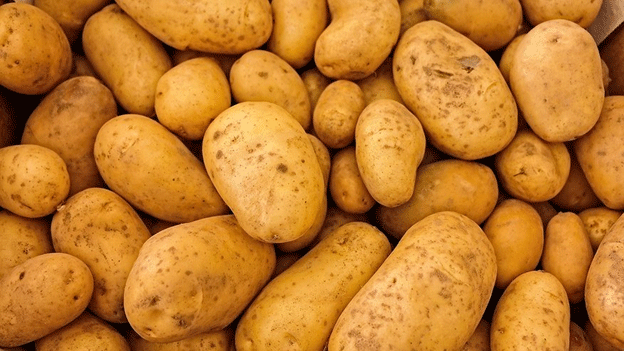Residents of Yekaterinburg, Russia, are facing an unexpected challenge: a noticeable shortage of potatoes in supermarkets. A video posted in the local Telegram channel “Безумный Екб” showed empty shelves where potatoes are typically stocked in the “Monetka” supermarket. Along with the visual evidence of the shortage, there was speculation that this could be linked to the significant rise in potato prices across the country.
Factors Contributing to the Potato Shortage
- Price Increases: The sharp rise in potato prices is one of the most likely reasons for the current shortage. According to recent reports, potatoes in Russia have seen significant price hikes in 2024, with the cost of the crop rising by over 50% since the start of the year. This is largely due to a reduced harvest, unfavorable weather conditions, and a decrease in the amount of land dedicated to potato cultivation. As prices increase, both consumers and retailers are feeling the strain.
- Impact of Reduced Harvests: The 2024 potato harvest in Russia was notably smaller than in previous years, with a decrease in total production. Factors such as droughts, early frosts, and excessive rainfall have taken their toll on crop yields. This reduction in supply has led to a ripple effect, causing potatoes to disappear from store shelves and further exacerbating the price surge.
- Supply Chain Disruptions: While the main cause of the shortage seems to be related to domestic production issues, supply chain disruptions could also be playing a role. With high demand and limited supply, the logistical challenges of getting fresh potatoes into stores are contributing to the visibility of empty shelves in Yekaterinburg supermarkets.
Consumer Concerns and Impact on the Market
The potato shortage has led to a rise in consumer concerns. One Yekaterinburg resident noted that not only potatoes but also carrots were missing from shelves, although other users in the Telegram group reported that shortages of other staple vegetables like onions and cabbage were not as widespread. This local vegetable scarcity points to broader issues within the regional food distribution system, though it has not yet led to widespread panic buying or hoarding.
As a staple of the Russian diet, potatoes are an essential part of the daily food basket, and their sudden absence has prompted a public reaction. While many consumers are anxious about continued price increases, others are adjusting to the situation by purchasing alternative vegetables or opting for smaller quantities when available.
Broader Implications for the Agricultural Sector
This shortage is a wake-up call for the agricultural sector in Russia. With the growing demand for potatoes and other vegetables, there is a clear need for better crop management, investment in technology, and improvements in agricultural practices to ensure consistent and reliable yields. Additionally, more resilient farming practices and improved weather prediction models are necessary to mitigate the impact of climate change on crop production.
Farmers and agronomists will need to adopt more sustainable and adaptive farming methods to counteract the challenges posed by extreme weather events and fluctuating market conditions. Moreover, there may be opportunities for agricultural engineers to explore new ways of optimizing potato cultivation, particularly in regions like Yekaterinburg where production has been historically strong.
The potato shortage in Yekaterinburg highlights a significant issue in Russia’s agricultural supply chain. It underscores the challenges faced by both consumers and producers, with price increases and reduced availability of key crops causing friction in the market. As the situation continues to evolve, it is essential for agricultural practices and policy to adapt to ensure that such shortages do not become a recurring problem, allowing consumers and the agricultural sector to stabilize in the face of changing conditions.







